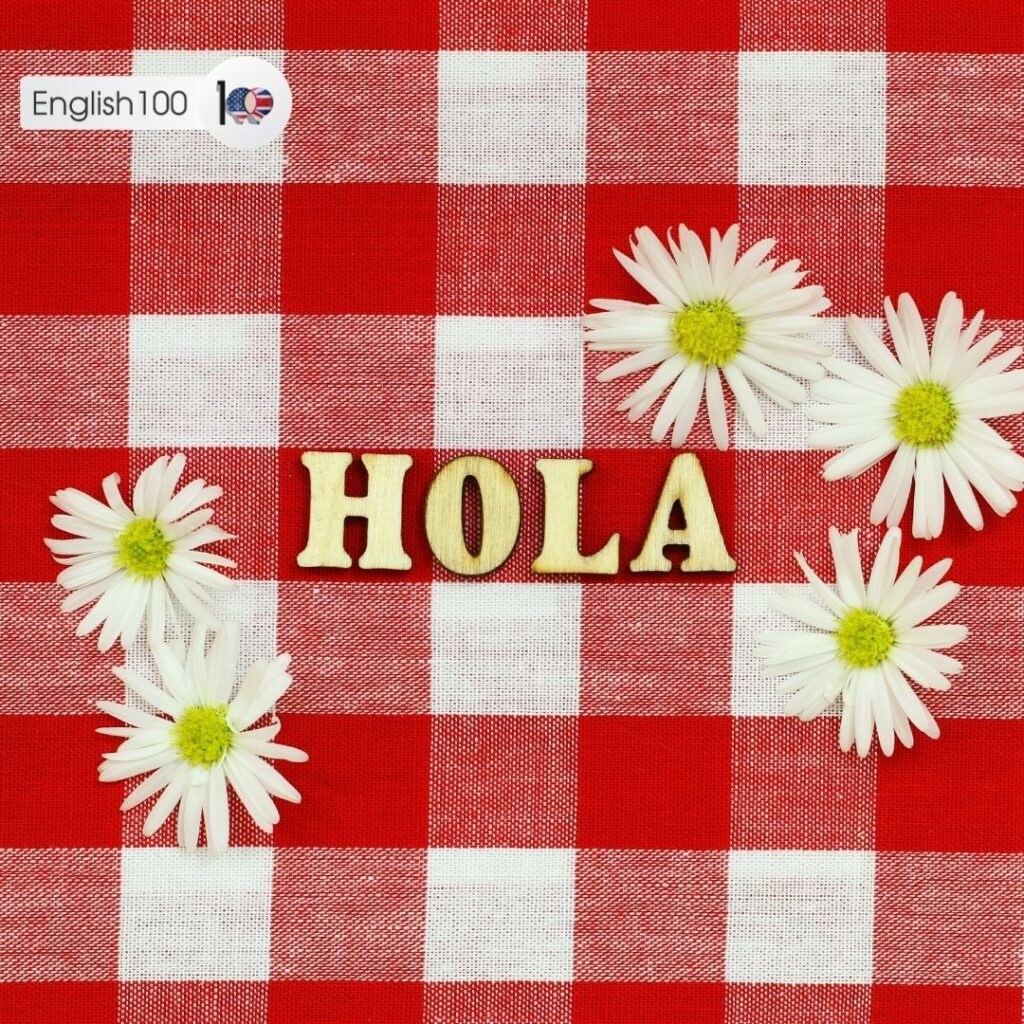If you’re looking to learn a new language, but don’t know where to start, you’re in luck! In this blog post, we’ll outline six easy languages to learn for English speakers, including Spanish, French, Portuguese, German, Dutch, and Swedish.
Whether you’re planning a trip abroad or just want to expand your linguistic skills for general conversation, these languages are a great place to start from. So read on and get started on your new language journey today!
Easy languages to learn for English speakers:
There are several easy languages for English speakers to learn. One of these languages is Spanish, as it shares many similarities with English in terms of vocabulary and sentence structure. Additionally, French is considered relatively easy for English speakers due to its shared Latin roots and similarities in grammar.
Another easy language to learn is Dutch, as it has many cognates with English and a relatively simple grammar structure. Finally, German is also considered to be relatively easy for English speakers, as it shares many similarities in vocabulary and grammar.
Overall, while learning any new language requires effort and dedication, these languages can be more accessible for English speakers due to their similarities.
The below languages are to learn for English speakers:
- Spanish
- French
- Portuguese
- German
- Dutch
- Swedish
In today’s world, multilingualism is becoming more and more important. In addition to opening up employment opportunities, being able to speak a foreign language helps to make a real connection with people and to know more about diverse cultures, places and lifestyles.
1. Spanish:

Spanish is one of the easy languages to learn for English speakers due to its similar roots to English. It is a Romance language, which means it has many similarities to French and Italian.
Spanish also has a large number of immigrants from countries around the world, which contributes to its diversity and richness.
With all these factors contributing to its ease of learning, it’s no wonder that Spanish is one of the most popular languages studied abroad.
Whether you’re an English speaker and interested in learning Spanish for travel, business, or just for fun, there are a number of resources available online to help you succeed.
From free online lessons and podcasts to apps and books, you can find everything you need to learn Spanish effectively and efficiently.
In addition, with the global reach of the internet, you can find plenty of opportunities to practice your new skills with people from all over the world.
2. French:
French is spoken by nearly 300 million people in many different parts of the world. The French language takes the second spot on our list of the easy languages to learn for English speakers, making it the second most widely-spoken European language in the world.
As with the other Romance languages, the biggest benefit to choosing to learn French is a large amount of shared vocabulary. But this isn’t solely due to its linguistic roots. During the long history of wars and conquests between France and England, key language parts were passed from one country to the other.
This mostly came in the form of French vocabulary added to the English language, such as avant-garde and à la carte, although the word-sharing went from English to French as well (e.g. weekend).
French pronunciation is a bit tricky, at first, but we often hear French accents in pop culture, making them easier to replicate than you may think.
3. Portuguese:

This is the third of the easy languages to learn for English speakers on our list is Portuguese, a member of the Romance language family that’s spoken in both Portugal and Brazil.
Like Spanish and Italian, the language tends to stick close to its roots, it’s difficult for a Portuguese speaker (like Spanish or Italian) to speak English as their first foreign language.
Thankfully, getting word-for-word translations in an instructional course is fairly straightforward when starting. Portuguese cognates tend to work better than French ones meaning they’re even easier to learn than you might think!
4. German:

It’s true that German is one of the easy languages to learn for English speakers. The reason for this is that the two languages share a lot of similarities, including those derived from their respective roots in Latin and Sanskrit.
These similarities make it easier for English-speaking individuals to understand and communicate in German. However, that doesn’t mean that you should feel comfortable picking up any old phrasebook and heading off to Germany.
If you plan on spending any significant amount of time in Germany, it’s recommended that you learn some basic conversational German, as well as the local customs and traditions. Otherwise, you may find yourself feeling like an outsider, unable to fully participate in everyday life.
5. Dutch:

Dutch is an easy language to learn for English speakers, largely due to its similarity to English. Dutch grammar is very similar to that of English, and it is spoken in the same part of the world as the United States, Canada, and the UK.
Dutch vocabulary is also similar to English, with most words in both languages having a similar meaning. This makes it easier for English speakers to learn Dutch since they will already be familiar with many terms and concepts.
In addition, there are plenty of resources available online to help English speakers become more familiar with the Dutch language and culture. All in all, Dutch is one of the easy languages to learn for English speakers.
6. Swedish:

Swedish is one of the easy languages to learn for English speakers, thanks to its similarities with other Germanic tongues like English, German, and Dutch. It has a distinct but beautiful alphabet and a rich cultural history.
All in all, it’s a pleasant and rewarding experience to learn Swedish and make the switch from English to the Scandinavian tongue. Swedes are known for their welcoming nature and their emphasis on social justice.
They are also known for their love of coffee, chocolate, and ABBA! So if you’re looking for a place where you can feel at home, learning Swedish might be the right choice for you.
In addition to its positive qualities, Swedish is also a useful language to know because of its role in global trade and politics.
Let’s face it if you want to get ahead in business or communicate with other countries effectively, you’re going to need to know some Swedish.
Foreign language study enhances listening skills and memory. One participates more effectively and responsibly in a multi-cultural world if one knows another language. Your marketable skills in the global economy are improved if you master another language.
Some FAQs:
What is the easiest language to learn as an English speaker?
Different people have different preferences when it comes to learning a new language. However, some popular languages that are considered easy languages to learn for English speakers include Spanish, Norwegian and Germanic language.
What is the second easiest language to learn for English speakers?
The second easiest language to learn for English speakers is often considered to be Spanish. This is because Spanish and English share many similarities in terms of vocabulary and grammar.
Both languages are derived from Latin, which means that there are many cognates, or words that are similar in both languages. Additionally, Spanish has a relatively straightforward pronunciation system, making it easier for English speakers to learn and pronounce words correctly.
Furthermore, Spanish is widely spoken around the world, making it a practical and useful language to learn for both personal and professional reasons.
What language is most similar to English?
The language that is most similar to English is often considered to be Dutch. Dutch and English both belong to the West Germanic branch of the Germanic language family and share many similarities in terms of vocabulary, grammar, and sentence structure.
Additionally, Dutch and English have had a long history of interaction and influence on each other, further contributing to their similarity. However, it is important to note that no language is exactly the same as English, and each language has its own unique features and differences.
What is the most useful language to learn after English?
The most useful language to learn after English depends on your career goals, education level, and personal preferences. However, some languages that may be of benefit to those who want to pursue a career in business or commerce include Spanish, German, Italian, and Japanese.
For students pursuing higher education, languages such as Mandarin, Russian, and Korean are often recommended. Ultimately, the most important thing is to research which language is the best suited for your individual needs and interests.
Is Spanish or French easier?
Deciding whether Spanish or French is easier to learn largely depends on your native language and any other languages you might already speak. However, for English speakers, both Spanish and French offer some advantages and pose unique challenges:
Similarities to English
Both Spanish and French:
1. Are Romance languages, deriving from Latin, so they share many cognates with English (words that look and sound similar and have the same meaning, like “information” in English, “información” in Spanish, and “information” in French).
2. Have grammar rules and vocabulary that can be more straightforward to learn for English speakers compared to languages from different families (like Chinese or Arabic).
Reasons Spanish Might Be Easier
1. Phonetics: Spanish is generally more phonetic than French, meaning words are pronounced as they are written, which can make reading and speaking predictably easier.
2. Verb Conjugations: Although Spanish verbs are numerous and follow several conjugation patterns, they are often more regular than French verbs, making them somewhat easier to learn.
Reasons French Might Be Easier
1. Vocabulary: There is a significant amount of overlap in vocabulary due to the Norman conquest of England in 1066, which introduced many French words into the English language. This can make many French words feel familiar to English speakers.
2. Shared Cultural Words: English has adopted many French words in areas of fashion, cuisine, art, and literature, which might make them more recognisable and easier to learn.
Challenges of Each Language
Spanish: The speed at which Spanish is spoken can be a challenge for learners. Additionally, different dialects feature significant variations in pronunciation and vocabulary.
French: French pronunciation and spelling can be particularly challenging. The language features a number of silent letters and nasal sounds that are not found in English.
In conclusion, the world is becoming a global village. We are moving towards the future where English will be used as the common and official language for all people. Language learning needs to practice every day with your daily routine and activities.
Learning languages can help in getting a job abroad or just knowing more about other cultures and regions around the world. If you are an English learner, it’s best to learn these 6 easy languages to learn for English speakers.
References:
- 4 reasons why learning English is essential. (2001d, February 19). https://www.etsglobal.org/pl/en/blog/news/importance-of-learning-english#:~:text=In%20today’s%20world%2C%20multilingualism%20is,diverse%20cultures%2C%20places%20and%20lifestyles.
- Why study a foreign language? (n.d.). University of North Georgia. https://ung.edu/modern-languages/why-study-a-foreign-language.php#:~:text=Foreign%20language%20study%20enhances%20listening,if%20you%20master%20another%20language.

